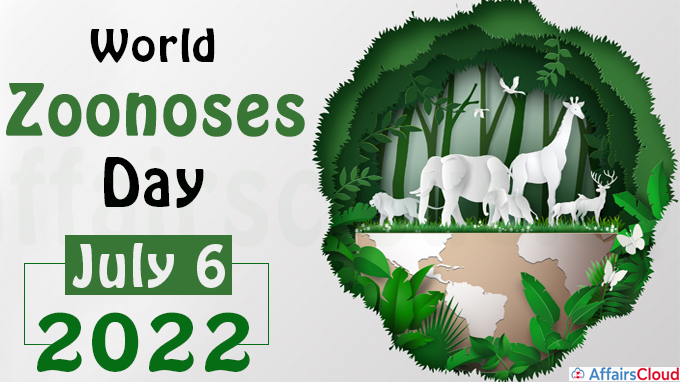
World Zoonoses Day is annually observed across the globe on 6th July to create awareness about Zoonosis or zoonotic disease, an infection that is transmissible from animals to humans.
- The day commemorates the anniversary of the administration of the first rabies vaccine to a human on 6th July 1885 by French Biologist Louis Pasteur.
Zoonosis:
i.Zoonotic pathogens can be bacteria, viruses or parasites, or they may involve unconventional agents and can spread to humans from animals through direct contact or through food, water or the environment. There are more than 200 known types of zoonoses.
ii.Zoonoses include a wide range of new and existing diseases in humans, such as rabies, which are 100% preventable through vaccination and other methods
iii.Zoonoses like Ebola, salmonellosis and COVID-19 have the potential to cause a global pandemic.
Note: Globally around 75% of the emerging infections in humans are transmitted from animals.
Prevention:
i.Offering safe and appropriate guidelines for animal care in the agriculture sector will support reducing the potential foodborne zoonotic disease.
ii.Promoting handwashing after contact with animals and other behavioural adjustments will reduce the community spread of zoonotic diseases.
WHO’s One Health approach:
i.World Health Organization(WHO)’s One Health approach is a multisectoral, transdisciplinary, and collaborative approach that works to achieve better public health outcomes.
ii.As part of the One Health approach, the WHO works with the Food and Agriculture Organization of the United Nations (FAO) and the World Organisation for Animal Health (OIE) on the Global Early Warning System for Major Animal Diseases (GLEWS).
About World Health Organization(WHO):
Director-General-Dr Tedros Adhanom Ghebreyesus
Headquarters– Geneva, Switzerland
Founded– 1948




